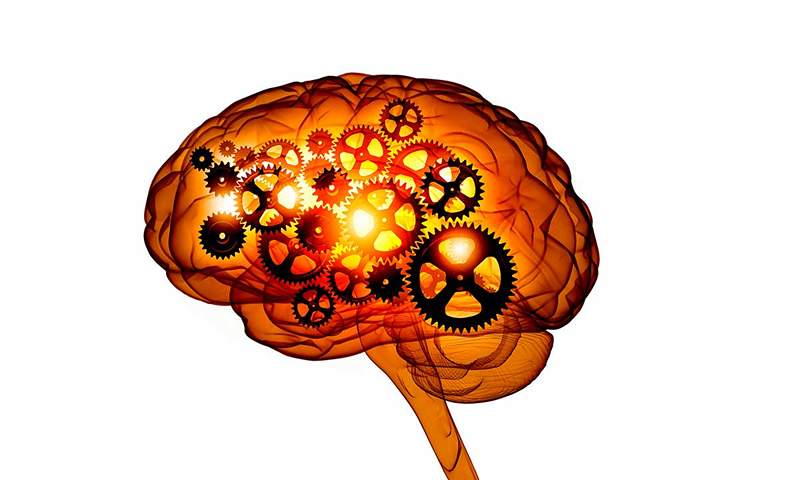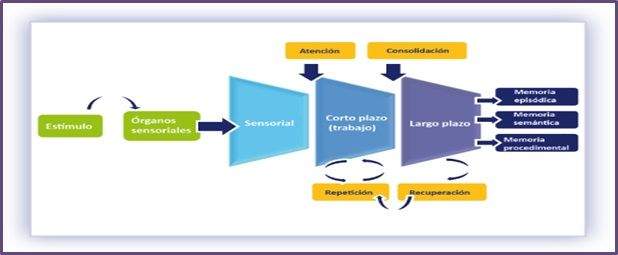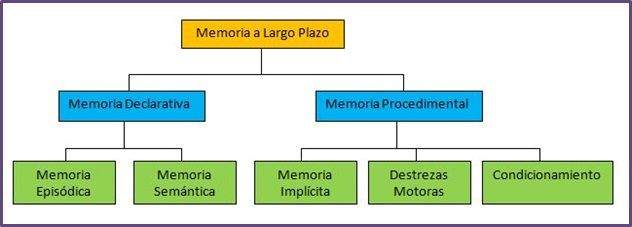The key memory to enhance it

- 4983
- 935
- Ryan Bogisich
We define memory as our ability to store, process and recover the information that comes from the outside world.
This capacity is closely related to the topic we discussed previously, that is, learning. While learning deals with the acquisition of new information, memory deals with its persistence.
Content
Toggle- Encode, store and recover
- Memory types
- Short and long term memory
- Declarative and procedural memory
- When memory fails us
- Keys to memorize
- Without imagination there is no memorization
- Link (or association)
- Rules
- References
Encode, store and recover
Coding refers to the process by which information becomes a stored mental representation. The recovery It is the process by which information can be rescued to consciousness.
There are numerous types and classifications of memory. According to the sensory entry For which we receive the information, we distinguish between visual, auditory, gustative, olfactory and tactile memory. According to the stimulus modality To memorize, we distinguish between memory for words, memory for faces, memory for shapes, etc.
The skills or disabilities for each of these memories are very different for each of us, also influenced by genetics, learning in childhood and cultural heritage.
Memory types
One of the most classic dichotomies in relation to memory types consists of the distinction between short and long term memory.
Short and long term memory

The short -term memory It refers to the immediate evocation of the material presented or its evocation a bit longer, made by uninterrupted review. Its capacity or amplitude is limited. Examples of this would be when we repeat phrases, telephone numbers, indicated block sequences, etc. The maximum that we could remember how average is between 5 and 9 numbers. If we have to keep this information in our minds, then we use our work memory. For example, when we read a phone number that we do not have previously memorized and try to retain (usually based on constant repetitions). This type of memory is very vulnerable to interference.
Mental calculation is a function of working memory too, this memory operates when it makes no sense to remember the information we have obtained.
The long -term memory It is the evocation of information after an interval in which we have focused attention on another task. This has a very little limited capacity. It is practically impossible to know what one knows. Short -term information, if it has a strong emotional load, can be consolidated almost automatically and go to the long -term memory.
For example, we do not retain the conversations that we hear every day, but when they tell us something that hurts or deeply angry we can remember it for a long time.
It may interest you: Memory types and our way of storing memories
He forgetfulness or loss of irrelevant information is a necessary function not to saturate the system.
Declarative and procedural memory

The declarative memory It refers to the acquisition of facts or data directly accessible to consciousness, that is, those that are easily evocable at will: the faces of the people, their names, their smell, when we remember our vacations, our first love ... and their time, it is divided into two: the episodic (the information of a specific time and space-for example: what we have eaten today-) and the semantics (the general knowledge of the world-for example: what is the capital of France-).
Procedural memory includes habits, procedures and sequences such as bike, swimming, skiing, dancing, driving ..
 School motivation and performance
School motivation and performance When memory fails us
The term amnesia refers to a disorder of cognitive function in which memory is affected in a proportionally much more important way than other components of intellectual behavior or function.
It can be caused by many factors: lesions in brain structures, malnutrition, alcoholism, viral diseases, oxygen deficit, etc.
Some types of amnesia are: anterograde amnesia (affectation of the ability to acquire new information from any sensory modality), Retrograde amnesia (affectation of the ability to evoke well -established information and events before the start of the disease) or the definitive amnesia It refers to total and irreversible loss to make new learning (it is very uncommon).
A situation very different from amnesia is the decrease in the ability to learn new things or to evoke information and, again, there are many factors that cause it from stress, insomnia, depression or not moderate anxiety, aging or use of drugs, for example.
A detail that we overlooked many times, is the impact on the use of the Internet. In my opinion I think it helps us on the one hand (many powerful applications are used to enhance memory through games, or other types of cognitive stimulations, which are going very well) but on the other hand we barely have a doubt and,, do what do we do? TO Google. It is our warehouse at your fingertips and it's not bad, come on; We would stop being functional in this company if we do not manage time to the fullest, but there are situations in which it would be very good to challenge our memory and not make it so lazy, that what is not used, you already know: it is lost.
It may interest you: Psychotechnical and memory test
Keys to memorize
Without imagination there is no memorization
Imagination is something we all have and use, although we do not always use it in those things that report more benefit. The imagination in the field of memory is key. For example:
Which of these two methods do it find it easier to remember someone called Felipe after having known it?
- As soon as you have presented it, you repeat inside [Felipe-Felipe-Felipe-Felipe-Felipe-Felipe-Felipe-Felipe-Felipe-Felipe-Felipe-Felipe-Felipe- ...]. So until they introduce you to the next person and do the same.
- When you introduce you to Felipe you come to mind the suffix "lots" and before finishing sharing your hand, you have already composed your name in your mind "Felipe-Lotas", you have imagined it by picking up football balls in a stadium he alone (for example 🙂) and having to run from one end to another the field to collect a ball that has just been behind one of the goals. He is tired, breathless, sweating and wishing that the game is over and.
We remember the things that have caused some impression on us. As we see in the example of Felipe-Lotas, humor plays an important role in all this.
Link (or association)
It consists in associating the concept you want to remember with something that will remind you of this concept in the future.
What is easier for you to remember, the name of the "ammonium" chemical element (word you hear for the first time) or the effect of a "ammonia" boat on your skin, the smell, the pain that causes? If you have to memorize the word "ammonium" for a chemistry exam, for example, imagine without gloves taking a ammonia foolish boat, so that your hand is soaked with the harmful liquid. You get dizzy by the smell so strong caused by the contact of the fluid with the skin and it hurts a lot.
You involve your senses (sight, smell, touch) so it is infinitely more difficult to remember a concept that you have no past references (it was the first time you listened to the word "ammonium") or it does not impact you because it does not make you funny It is not fun, exaggerated or sensual; that the object with which you have linked (associated), something that does have those properties that cause sensations in you. In the example above, pain, strong smell and skin wounds.
Rules
The concepts to remember you are going to associate objects using the following:
- Images:
- alive
- in color
- moving
- in three dimensions
- exaggeratedly large, small, numerous, scarce
- getting wet
- ablaze
- at full speed
- At a snail's pace
- crashing
- positive (so the effect of the ammonia will only recommend it if you are a masochistic)
- jumping
- slipping
- To stumble
- stretched
- shrunk
- wrinkled
- Bright
- [Follow you]
- The 5 senses (smell, ears, taste, touch and view)
- Humor
- Position:
- on
- below
- beside
- behind
- in front of
- inside
- out
- Speed
- Shape
- Ridicule
- Absurd
- Disproportion
- Expansion
- Contraction
- Rhythm
- Sex
References
- Duran, j. (nineteen ninety six). The polyhedral brain. Barcelona: Bromera.
- The memory (2007). In Encyclopedia of Psychology (Vol. 3, 11-45pp). Spain: Ocean.

